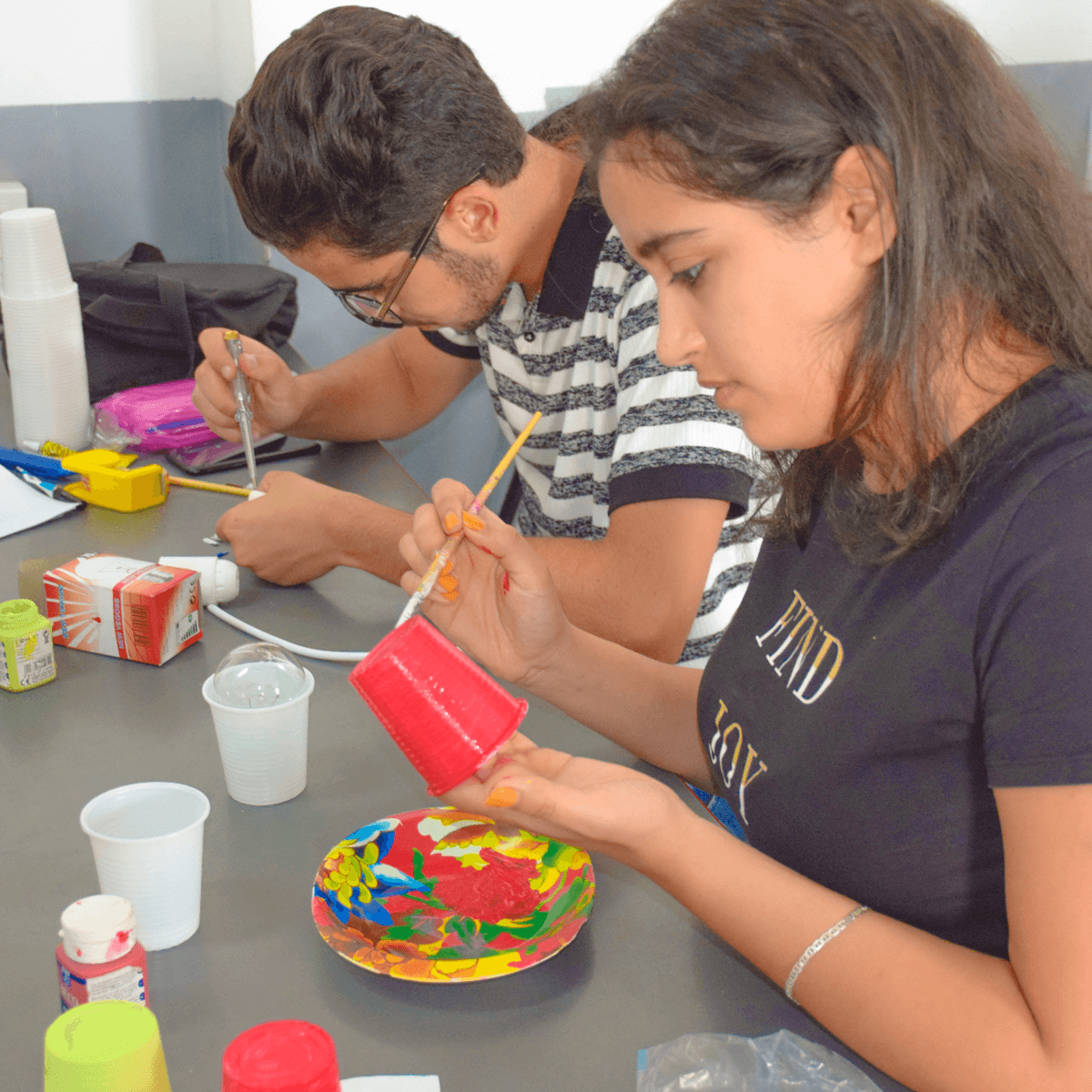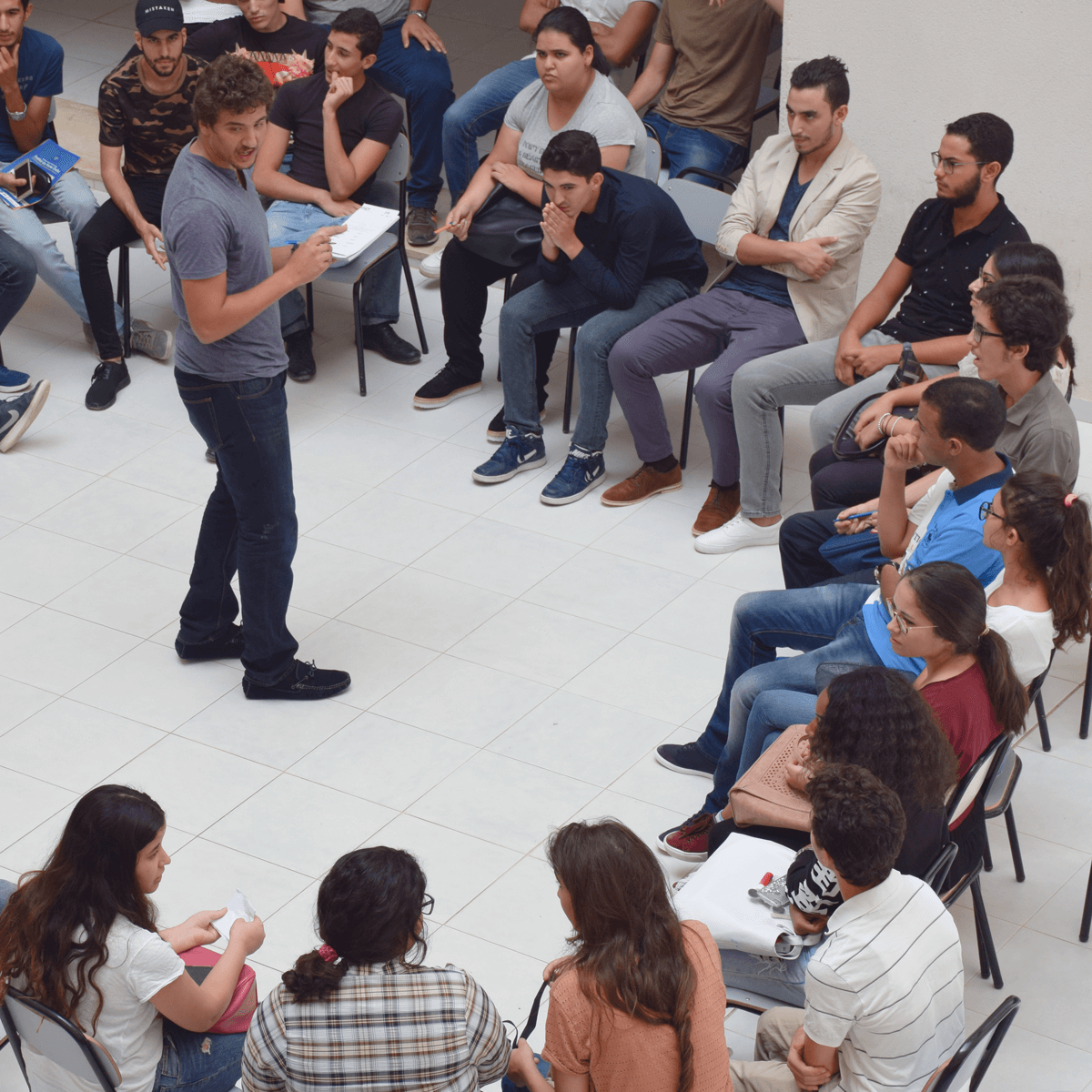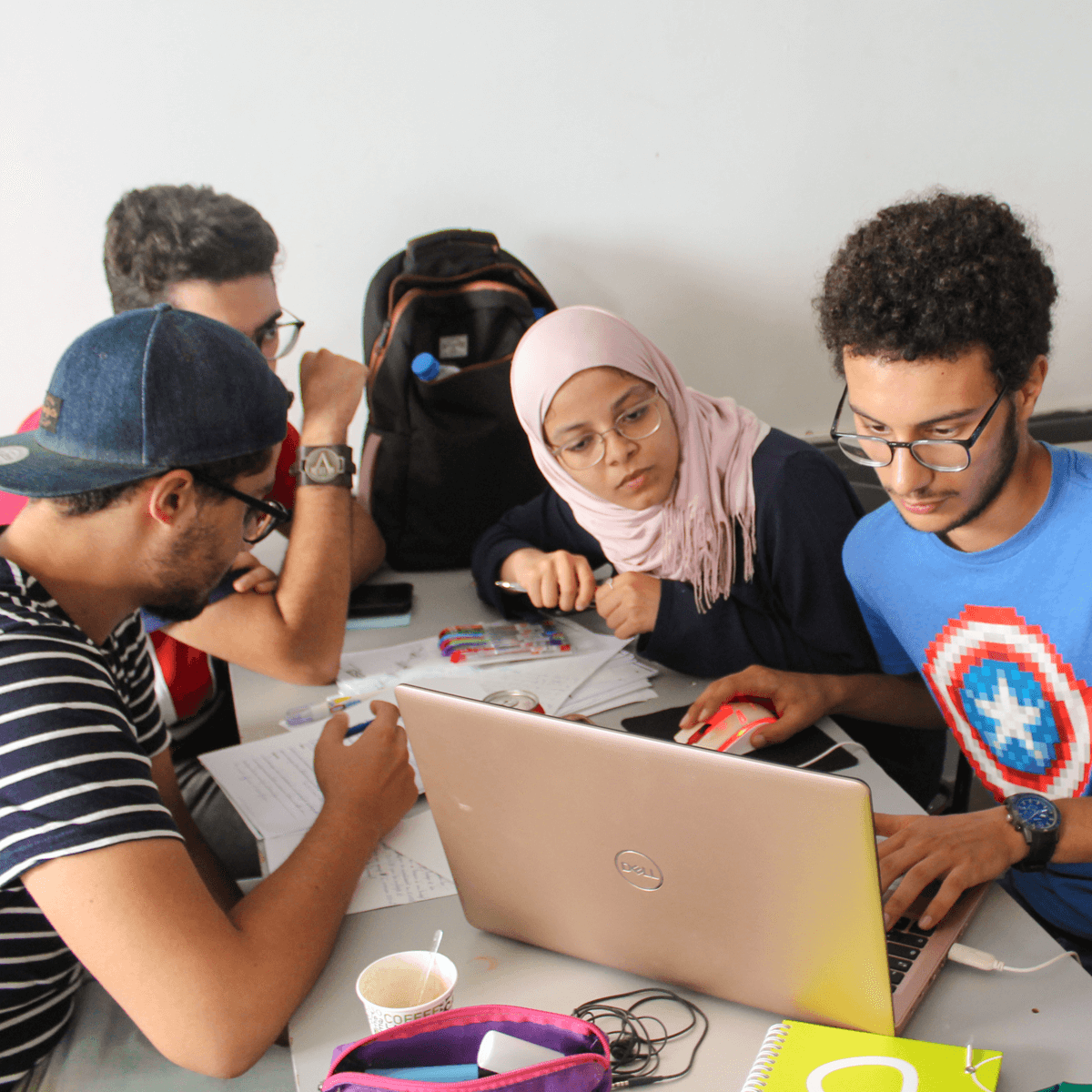The COVID-19 crisis has been a catalyst in speeding up digital transformation across the network and leveraging the move to remote work and learning, that is, driving a ‘digital mindset’. However, there is still a need for learning to continue in a physical setting, too. To create innovative practical learning experiences in physical spaces, Project Based Learning and Work Integrated Learning methods are used, which enable innovative learning techniques while also drawing on a digital mindset.
Since its launch in 2003, Esprit (Tunisian private school of engineering) has been concerned with the striking finding of the non-adequacy of the engineering training with the labour market needs and have since introduced project based learning.
Project Based Learning (PBL) is a pedagogical approach that enables students to learn while engaging actively with a set of coordinated and controlled activities. These activities have measurable objectives, compliant with specific requirements of time, cost, and resources

Project Based Learning

The activity, project, problem, or contextualized course is often adapted according to learning objectives previously fixed in the discipline’s program sheet. Students make sense of the concepts and activate their individual and collective prior knowledge by finding resource problems. They also engage in peer learning through group discussions and consolidate their learning by reflective writing. PBL can be viewed as an iterative process made up of (1) a problem analysis phase, (2) a period of self-directed learning, and (3) a reporting phase. Under the PBLE approach, a given project is not the purpose of learning, it is the means. It is not confined to the simple application of knowledge already acquired in previous courses; it also allows for the development of new skills and the acquisition of more knowledge. These skills include project management (time management, planning, organization, leadership, risk management, etc) and teamwork (motivation, delegation, conflict resolution, etc). >>read more
Lamjed Bettaieb, deputy general manager of ESPRIT Group
“The main goal of PBL at Esprit is to facilitate the students' learning process and support their acquisition of complex technical competencies. The projects engage students in the problem definition, design process, contextual understanding and implementation approaches. Students learn to work in teams, and to plan and carry out different tasks that are required during the different projects. They come to understand their own and their teammates' strengths and skills. Students are expected to draw information from a variety of sources and be able to filter, analyze and interpret the relevant points. They are also expected to communicate effectively to different audiences in oral, visual and written forms”.

WORK INTEGRATED LEARNING

The Work Integrated Learning (WIL) internship is an opportunity for students to be immersed in a real work environment in order to gain practical knowledge from their experiences. The aim of this approach is to reduce the gap between academic competencies learned in class and applied practical competencies at enterprises. Students develop skills by working in a team, developing their critical thinking, communication and conflict resolution skills, as well as learning to integrate into existing teams while developing the ability to assert their views appropriately. As for the technical skills, students have the opportunity to work on real projects and develop their knowledge on a real-scale industrial production or supply chain, using their knowledge to solve real problems in real time.
To implement the WIL approach effectively, it is important that the objectives of the program are clarified from the start. >>read more

